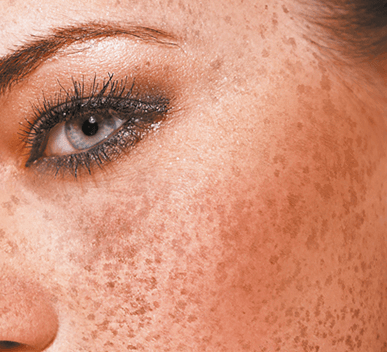In women, melasma may fade on its own after a pregnancy or discontinuation of birth control pills.
In other cases, your dermatologist may recommend a hydroquinone containing topical cream as a first step in treatment. This medicine is available both over-the-counter and in stronger formulations that require a prescription. Hydroquinone works by inhibiting melanin production, thereby lightening the skin. It is important to practice regular sun protection habits during and after treatment to maintain the results.
For persistent or stubborn melasma, your dermatologist may prescribe a stronger cream that combines three ingredients: hydroquinone, tretinoin and a mild corticosteroid. This combination is used for a given period of time followed by maintenance treatment.
If topical medicine does not improve the condition, your dermatologist may discuss with you procedures including chemical peels, light-based procedures, or laser treatments.
For the best results of melasma treatment, broad spectrum, water resistant sun protection, preferably with a mineral based sunscreen containing zinc or titanium dioxide and SPF 30 or higher, should be used regularly along with general reduction of exposure to the sun’s rays.
If you have skin lesions that are concerning for melasma, click here to schedule an appointment with our board-certified dermatologists or walk into Walk-in Dermatology at your convenience for your evaluation.







